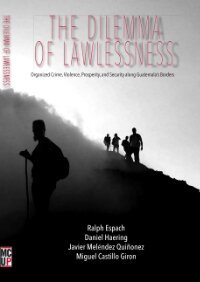By Venezuela Investigative Unit
Is Venezuela now a hybrid state, where the line between governance and criminality has blurred, or even disappeared altogether? The start of this evolution can be traced back 20 years to then-President Hugo Chávez and his willingness to use all means necessary to cling to power. Since then, the country has seen the emergence of new generations of hybrid armed groups, which systematically coordinate and cooperate with elements of the state. In some parts of Venezuela, authorities now co-govern with these groups, working hand in hand to maintain social control over the population and to counter political, social, and economic threats.
Washington, DC: Insight Crime, 2023. 41p








